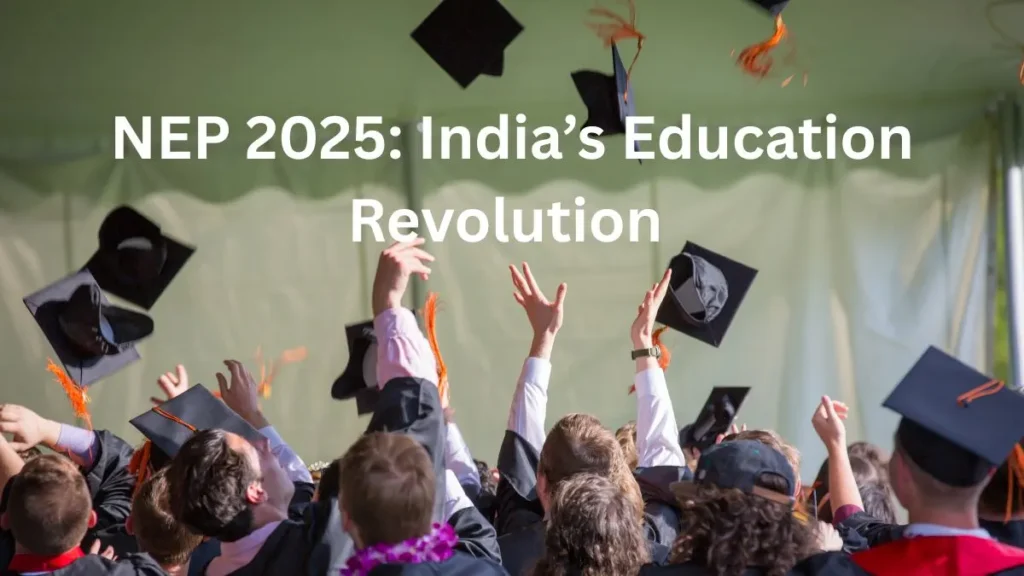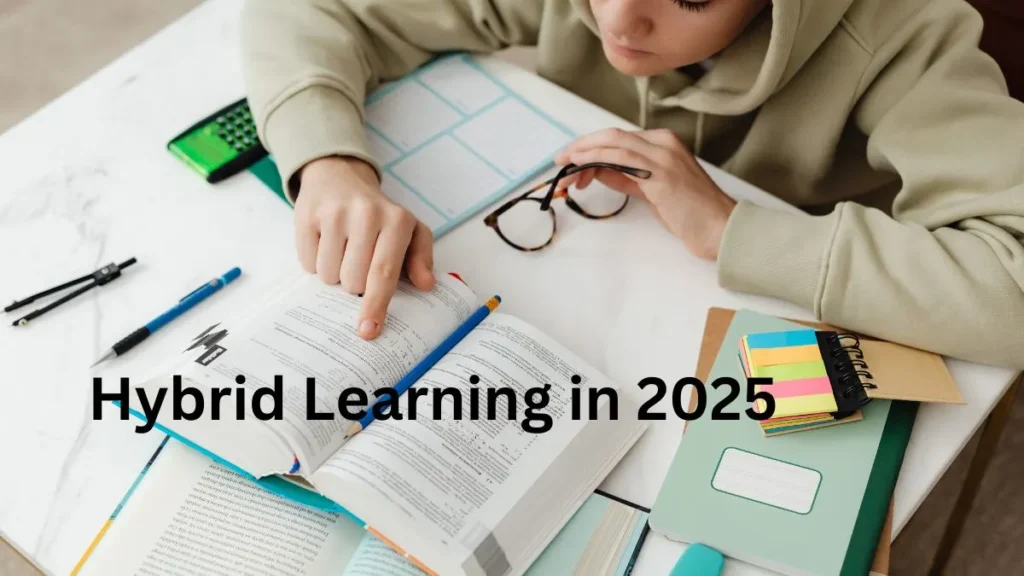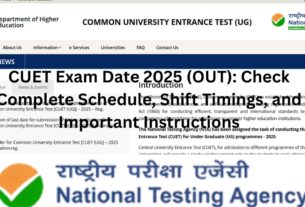Author: xyzinfo | Published: May 17, 2025
The Indian education system is once again in the spotlight. With the National Education Policy (NEP) 2025 updates officially notified last month, debates have erupted across the country, from classrooms to Parliament. While some hail it as a revolutionary step towards global educational standards, others see it as just another well-packaged reform lacking real impact.

In this article, we dive deep into the key highlights of NEP 2025, what’s changed from NEP 2020, and whether this policy will truly transform education for India’s youth.
What is NEP 2025?
NEP 2025 replaces NEP 2020 as India’s newest educational blueprint in nearly four decades. The NEP 2025 therefore aims to solve issues that arose in implementation and accomplishes objectives missed by the previous policy.
NEP 2025 focuses on:
- Foundational learning outcomes
- Multidisciplinary higher education
- Skill-based learning from Class 6 onwards
- Universal digital education infrastructure
- Regional language empowerment
- AI, coding, and cybersecurity in the school curriculum
What’s New in NEP 2025?
Here are the key changes introduced in the latest version:
1. Board Exams Twice a Year
Yes, you read it right. Students can sit for both board exams twice and the better one will be counted. it’s intended to help students control pressure and offer them another opportunity to demonstrate their knowledge.
Impact: Reduces anxiety, promotes fair evaluation, and aligns with global education standards.
2. Pan-India School Credit Bank
A unique “Student Credit Bank” will be introduced at the school level, where students can earn and store credits for academic and co-curricular achievements. These credits can be used later for college admissions and even job portfolios.
Impact: Encourages holistic learning beyond just marks.
3. Coding, Cybersecurity & AI from Class 6
Building on India’s digital aspirations, NEP 2025 has mandated basic coding, AI, and cybersecurity education from Class 6 onwards. This move reflects India’s commitment to achieving digital self-reliance and equipping students for tomorrow’s challenges.
Impact: Prepares students for future tech jobs and reduces dependency on foreign platforms.
4. Digital School Infrastructure for Rural Bharat
To bridge the digital divide, NEP 2025 promises to provide every government school with:
- Smart classrooms
- High-speed internet
- Tablets for students in Class 9 and above
- Free access to the “Bharat e-Learning Portal”
Impact: Rural students get access to the same content and tools as urban private schools.
5. Multilingual Curriculum by Default
While English and Hindi remain key mediums, NEP 2025 mandates regional language teaching up to Class 8 and ensures that content is available in all 22 Indian languages.
Impact: Strengthens cultural roots while maintaining global readiness.
What’s Still a Concern?
While NEP 2025 appears visionary, there are concerns among educationists and parents regarding:
1. Implementation at Ground Level
Policies are great on paper, but the biggest challenge lies in execution. Will rural schools actually receive tablets and smart classrooms? Will teachers be trained well?
2. Teacher Readiness
With the introduction of AI, coding, and multilingual learning, teacher training becomes critical. Unfortunately, India still has a shortage of well-trained digital educators.
3. Assessment Pressure
Two board exams may reduce stress but could also double the pressure if not handled well. This could leave students feeling they need to work twice as hard.
4. Privatization & Inequality
There’s a fear that elite private schools will benefit more from policy updates, while government schools struggle with basics. If transparency isn’t maintained, economic inequality may worsen.
What Do Students Say?
We asked some Class 10 and 12 students their opinion on NEP 2025:
“Board exams twice a year sounds good. I messed up my Class 10 pre-boards, so this would have helped.” – Aakash, Noida
“Coding from Class 6 is okay, but will rural kids get proper laptops and Wi-Fi?” – Suhani, Bhopal
“School credit system is a smart idea. Finally, debating and dance will also count.” – Rhea, Mumbai
Data Snapshot
- 81% of students surveyed said they like the new tech-based curriculum.
- Only 46% of teachers feel prepared to teach AI/coding in classrooms.
- As of March 2025, 32% of rural schools remain without internet access.
The Positives of NEP 2025
- Empowers students with modern skills
- Reduces rote learning and board exam stress
- Boosts regional pride via mother tongue
- Brings India closer to global education frameworks
- Promotes holistic personality development
The Challenges Ahead
- Massive teacher training required
- Real-time funding and infrastructure for rural schools
- Balancing traditional values with modern tech
- Policy monitoring and regular audits needed
- Making sure every child has access to digital resources.
The Road Ahead
NEP 2025 has the potential to redefine Indian education — but only if implemented sincerely. India must ensure:
- Budget Allocation: At least 6% of GDP for education as promised
- Teacher Empowerment: Nationwide digital teacher training programs
- Student Access: Devices and connectivity for every child
- Decentralized Planning: Empower local bodies to adapt the policy
Bonus Topic: Rise of Hybrid Learning in 2025 – The Future is Flexi-Ed!

As India steps into a new phase of digital transformation, the concept of hybrid learning — a blend of offline and online education — has taken a strong hold in 2025. This trend, born during the COVID-19 pandemic, has now evolved into a mainstream model of education, especially in higher studies and professional courses.
What is Hybrid Learning?
Hybrid learning blends face-to-face instruction with the benefits of technology-based materials. Learners get to experience tools and practices in the classroom and explore educational materials digitally from anywhere.
It improves students’ ability to structure their own learning and schedules, benefitting both them and their teachers.
Why is it Trending in 2025?
- EdTech Boom: Platforms like Byju’s, Unacademy, Vedantu, and even international apps like Coursera and Khan Academy are pushing hybrid programs.
- Digital Penetration: Affordable smartphones, 5G internet, and BharatNet in rural areas have made online education accessible.
- College-Industry Collaboration: Many colleges now partner with tech companies to deliver industry-relevant hybrid courses like Data Science, UI/UX, and Cybersecurity.
- Workforce Readiness: Companies prefer candidates who are comfortable with virtual collaboration and online learning tools.
Hybrid Learning Benefits
- Flexible Timings – Students can study at their own pace
- Access to Global Content – Learn from Harvard, IITs, or YouTube!
- Improved Engagement – Interactive quizzes, gamified content
- Blended Collaboration – Online doubt-solving + offline practicals
- Lifetime Learning – Working professionals can upskill anytime
But Challenges Exist Too
- Discipline Issues – Not all students are self-motivated
- Screen Fatigue – Excessive device usage harms mental & physical health
- Digital Divide – Still a gap in access for many rural students
- Teacher Tech-Readiness – Many educators are not comfortable with EdTech tools
Government Push
In the NEP 2025 rollout, hybrid learning has been recognized as a strategic pillar. Schools and colleges are now required to offer 20–40% of coursework digitally, with guidelines issued by UGC and CBSE for blended content delivery.
AI-based platforms like DIKSHA 2.0 and SWAYAM+ are also being scaled up to support this transition.
Final Thoughts
NEP 2025 is a bold step forward. If done right, it can unlock a generation of confident, digitally skilled, and globally competitive Indians. But without real commitment and grassroots execution, it may go down as just another well-drafted document.
India stands at an educational crossroads. The choice is ours: Revolution or repetition?
Over to You
What do you think about NEP 2025?
Are we truly ready for this new era of education?
Let us know your views in the comments below and don’t forget to follow xyzinfo.in for daily updates on education, tech, health, and national news!
You can also visit on Ministry of Education – Government of India
👉 https://www.education.gov.in
For More Updates Like This Please Follow Xyzinfo




